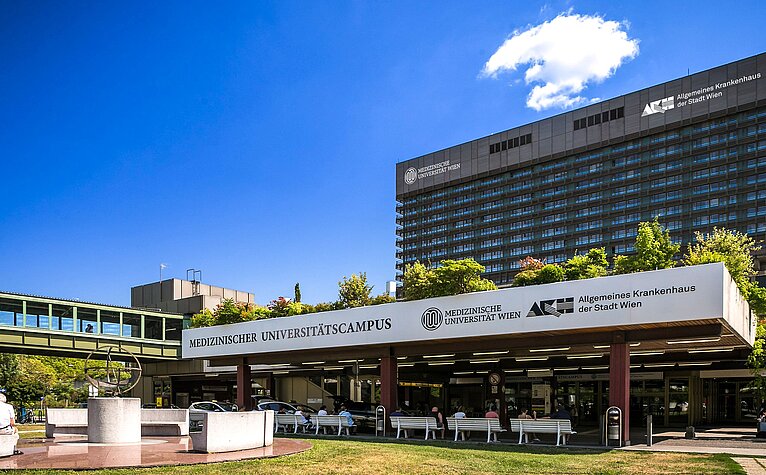 © MedUni Wien / AKH Wien / Houdek
© MedUni Wien / AKH Wien / Houdek
- Life Sciences
- Research & development
- News
World-class Research at the Medical University of Vienna
11. April 2024The Medical University of Vienna conducts research at a world-class level in fields such as precision oncology and bionic reconstruction. Construction of the Eric Kandel Institute – Center for Precision Medicine and top spots in global rankings underline the university’s role as a pioneer in life sciences research.
Medical technology plays a key role in the dynamic world of life sciences, especially the groundbreaking research and development taking place at the Medical University of Vienna. One outstanding example is the Eric Kandel Institute – Center for Precision MedicineEric Kandel Institute – Center for Precision Medicine (), which is being built at the Medical University Campus Vienna General Hospital (AKH) and will offer more than 6,000 m² of space to host a modern infrastructure for about 200 researchers. This initiative, named after the Nobel Prize winner Eric Kandel, aims to develop customised preventive, diagnostic and therapeutic methods. The investments of approx. € 90 million are being primarily financed by EU funds and donations.
The University Hospital Vienna (Vienna General Hospital, AKH) and the university clinics operated in conjunction with the Medical University of Vienna have also achieved a top position in the global ranking of the "World's Best Hospitals 2024""World's Best Hospitals 2024" () compiled by Newsweek and Statista, underlining the excellence and spirit of innovation in medical research and patient care.
This success is further reinforced by the work of researchers such as Florian KrammerFlorian Krammer (), an internationally recognised expert for vaccine development, and Philipp Staber, head of the landmark study EXALT 2 on precision oncology. Both researchers are playing a crucial role in pushing the boundaries of medicine thanks to their work in virology and cancer research. Moreover, bionics research led by Vlad Tereshenko and Oskar Aszmann at the Medical University of Vienna has demonstrated significant progress in the bionic construction of extremities. All this progress illustrates the university’s strength in linking high-tech medical technology with practical applications.
Read more about MedTech and the life sciences sector in Austria